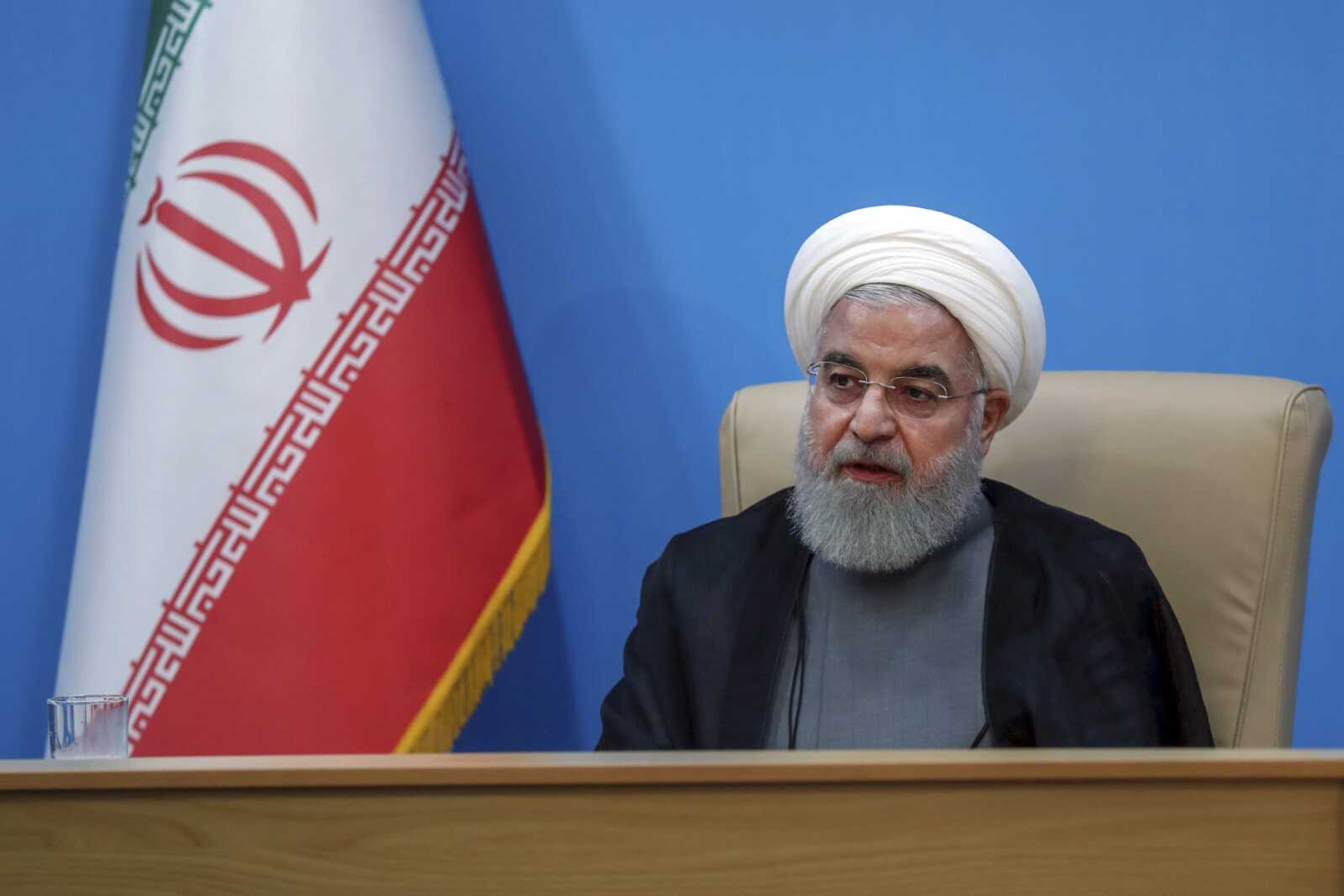Iran: Not enough on nuclear deal
VIENNA -- A meeting of the remaining partners in the Iranian nuclear deal produced some progress but not enough to satisfy Tehran's demands, a senior Iranian official said Friday, offering little prospect for now of the country backing away from a move to surpass a uranium stockpile threshold that could doom the agreement...
VIENNA -- A meeting of the remaining partners in the Iranian nuclear deal produced some progress but not enough to satisfy Tehran's demands, a senior Iranian official said Friday, offering little prospect for now of the country backing away from a move to surpass a uranium stockpile threshold that could doom the agreement.
Abbas Araghchi, Iran's deputy foreign minister, said after meeting with senior officials from Britain, Germany, France, China, Russia and the European Union a complex barter-type system set up to keep trade with Iran afloat is now active. But he insisted for the so-called INSTEX system to be useful, "Europeans need to buy oil from Iran, or to consider credit lines for this mechanism."
Araghchi described the meeting in Vienna, a regular quarterly gathering of signatories to the 2015 accord, as positive and constructive. He said it was "one step forward" compared with previous sessions, "but it is still not enough, and it is still not meeting Iran's expectations."
The 2015 agreement was aimed at curbing Iran's nuclear ambitions in exchange for relief from economic sanctions. President Donald Trump withdrew the U.S. from the accord last year and he has imposed new sanctions on Iran in hopes of forcing Tehran into negotiating a wider-ranging deal.
Iran recently quadrupled its production of low-enriched uranium. It previously said it would surpass a stockpile limit set by the accord by Thursday, but then said it was below the limit Wednesday and there would be no new assessment until "after the weekend." It is currently a holiday weekend in Iran.
European countries are pressing for Iran to comply in full with the accord, though they have not specified what the consequences would be of failing to do so. But Iranian officials maintain even if it surpasses the enrichment limit, it would not be breaching the deal, and say such a move could be reversed quickly.
The Europeans also face a July 7 deadline set by Tehran to offer long-promised relief from U.S. sanctions, or Iran will also begin enriching its uranium closer to weapons-grade levels.
After Friday's meeting, several EU countries said they are supporting efforts to keep the nuclear deal alive. Austria, Belgium, Finland, the Netherlands, Slovenia, Spain and Sweden wrote in a joint statement, "Aware of the difficulties to implement the economic part of the agreement, we are working ... to establish channels to facilitate legitimate trade and financial operations with Iran."
INSTEX was conceived in January but has taken months to activate. It would help ensure trade between Iran and Europe by allowing buyers and sellers to exchange money without relying on the usual cross-border financial transactions.
Senior EU diplomat Helga Schmid confirmed on Twitter the system is "now operational, (with) first transactions being processed" and more EU member countries to join. She said Friday's discussions were constructive and added "full and effective implementation of #IranDeal by all sides remains key."
Araghchi said he will report back to Tehran, which will make further decisions. Of the uranium weight limit, he said "the decision to reduce our commitments has already (been) made in Iran, and we continue on that process unless our expectations are met."
Asked whether there would be a follow-up meeting, Araghchi said delegates "decided to have a ministerial meeting very soon," perhaps in the next few weeks, although a time and place have not yet been determined. Friday's meeting was held at a lower level of senior foreign ministry officials.
Trump said on the sidelines of the Group of 20 summit in Japan "there's no rush" to ease tensions with Iran.
"There's absolutely no time pressure," he added. "I think that in the end, hopefully, it's going to work out. If it does, great. And if doesn't, you'll be hearing about it."
Tensions have been rising in the Middle East. Citing unspecified Iranian threats, the U.S. has sent an aircraft carrier to the region and deployed additional troops alongside the tens of thousands already there.
The U.S. has been worried about international shipping through the Strait of Hormuz since tankers were damaged in May and June in what Washington has blamed on limpet mines from Iran, although Tehran denies any involvement. Last week, Iran shot down a U.S. Navy surveillance drone, saying it violated its territory; Washington said it was in international airspace.
Connect with the Southeast Missourian Newsroom:
For corrections to this story or other insights for the editor, click here. To submit a letter to the editor, click here. To learn about the Southeast Missourian’s AI Policy, click here.








